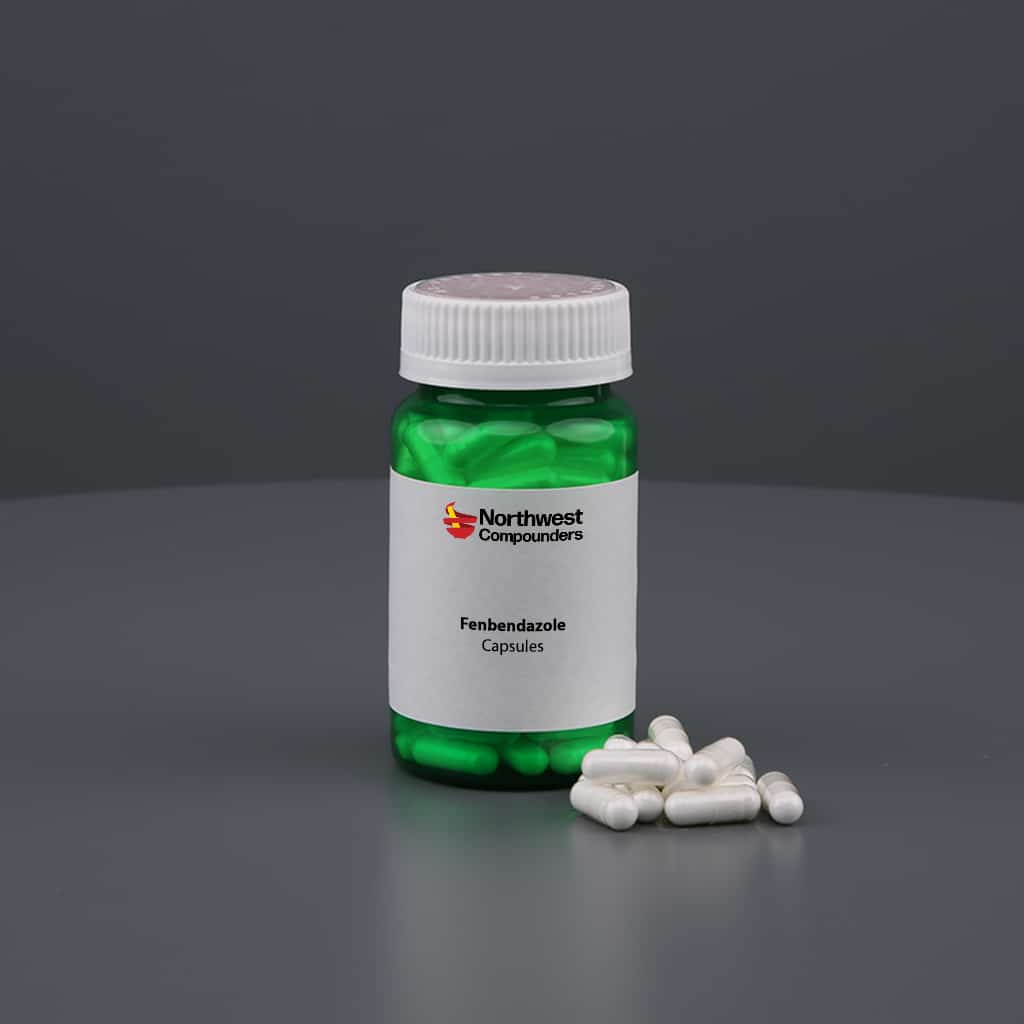Understanding the Conveniences and Uses of Fenbendazole in Veterinary Medication
Fenbendazole has developed itself as an essential anthelmintic in veterinary medicine. Its capacity to target different parasitical infections makes it a beneficial device for vets. The medication's mechanism interferes with necessary cellular processes in bloodsuckers, leading to efficient treatment outcomes. Its safety and security account varies between types, demanding careful factor to consider in its use (222 mg). Recognizing these characteristics can clarify fenbendazole's more comprehensive implications in veterinary care and recurring study right into its possible past standard applications
System of Action of Fenbendazole

Typical Parasitical Infections Dealt With With Fenbendazole
A range of parasitic infections are successfully treated with fenbendazole, making it a functional alternative in veterinary medicine. This anthelmintic representative is especially efficient against nematodes, including roundworms and hookworms, which frequently impact canines and cats. It is additionally utilized for the therapy of cestodes, such as tapeworms, providing a wide range of activity versus both kinds of intestinal tract bloodsuckers. Additionally, fenbendazole is advantageous in managing infections triggered by protozoa, specifically Giardia, which can result in gastrointestinal distress in pets. Its efficacy includes dealing with particular lungworms in canines and felines, attending to respiratory system wellness concerns connected to these parasites. Generally, fenbendazole's ability to target numerous parasitical species makes it an important device in veterinary technique, making sure the wellness and health of pet dogs affected by these typical infections.
Safety and Effectiveness in Various Pet Species
The safety and security and efficiency of fenbendazole differ amongst various pet types, underscoring the importance of species-specific considerations in vet medication. In canines, fenbendazole is normally well-tolerated and reliable versus a variety of intestinal parasites, including roundworms and hookworms. For felines, however, its usage is much less typical and may need mindful application as a result of possible damaging reactions.
In animals, such as livestock and Continue sheep, fenbendazole demonstrates effectiveness against numerous endoparasites, adding to enhanced health and productivity. The pharmacokinetics and prospective side impacts can differ noticeably in between types, requiring cautious assessment by veterinarians.
Equines also react positively to fenbendazole, especially for dealing with strongyles and ascarids, though dose and administration courses have to be customized to their special physiology. Comprehending these differences is vital for optimizing therapy results and guaranteeing pet well-being throughout diverse varieties.
Management and Dose Guidelines
Appropriate administration and dose standards are important for making best use of the therapeutic effects of fenbendazole while decreasing prospective negative effects. The dose typically differs depending upon the species being dealt with, the specific problem, and the formulation of fenbendazole used. fenbendazole 444. For dogs and felines, a common dose is 50 mg/kg body weight, provided once daily for three successive days, however vets may adjust this based on individual wellness assessments
It is very important to provide fenbendazole with food to boost absorption and reduce intestinal upset. The medicine is readily available in various types, consisting of granules and paste, enabling flexible management alternatives. Keeping an eye on the pet's action throughout and after therapy is recommended to verify efficiency and safety and security. In addition, vet read this support is crucial to figure out the ideal duration of therapy based upon the kind of parasitical infection being attended to, ensuring optimal end results for the pet's wellness.
Future Viewpoints and Research on Fenbendazole
Study on fenbendazole continues to progress, focusing on its possible applications beyond standard antiparasitic usages. Current studies have explored its performance in treating different forms of cancer, especially in veterinary oncology. Preliminary information recommend that fenbendazole might hinder the development of growth cells and improve the results of various other chemotherapeutic representatives.
Furthermore, scientists are exploring its duty in handling gastrointestinal problems in animals, highlighting its anti-inflammatory residential properties. The flexibility of fenbendazole for various species elevates concerns concerning its safety accounts and ideal dosing regimens in diverse populaces.
As passion grows, there is a need for comprehensive professional tests to establish evidence-based guidelines for these unique applications. Future research study may also examine the mechanisms behind fenbendazole's results, potentially leading the way for cutting-edge therapeutic strategies in veterinary medicine. The continuous exploration of fenbendazole might considerably boost therapy options for different veterinary conditions.

Regularly Asked Concerns
Is Fenbendazole Safe for Pregnant Animals?
The safety and security of fenbendazole for expecting pets remains uncertain. While some research studies recommend very little threat, veterinarians commonly advise caution and commonly discourage its usage while pregnant unless the advantages plainly outweigh possible threats.
Can Fenbendazole Be Made Use Of in Livestock?
Fenbendazole is frequently utilized in livestock to treat numerous parasitical infections. 222 mg. Its effectiveness versus stomach worms makes it an important anthelmintic, adding to improved health and wellness and efficiency in animals raised for food and fiber
What Are the Adverse Effects of Fenbendazole?

The negative effects of fenbendazole may include intestinal disruptions, sleepiness, and sensitive reactions. In uncommon instances, a lot more severe reactions might occur, necessitating careful tracking and assessment with a vet throughout therapy.
Just How Does Fenbendazole Contrast to Various Other Dewormers?
Fenbendazole uses broad-spectrum efficacy against various parasites, typically comparing positively to other dewormers. Its unique mechanism targets different life phases, making it reliable, while typically providing a positive security profile compared to alternatives readily available on the marketplace.
Can Fenbendazole Be Used for Treating Cancer Cells in Pet Dogs?
The discover here potential of fenbendazole in dealing with cancer in pet dogs has amassed interest. Preliminary studies suggest it might hinder cancer cells cell growth, but further research study is needed to verify its efficacy and safety and security in vet oncology.